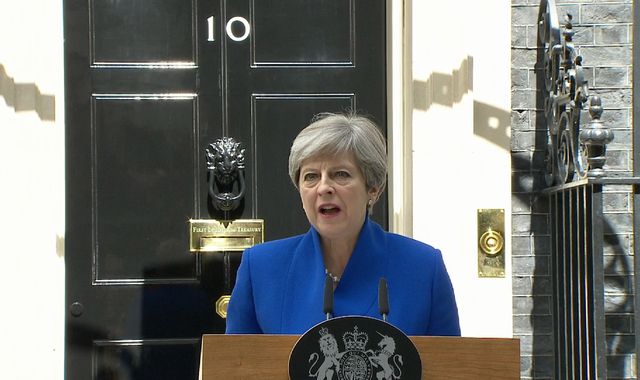General Election 2017: 6.5 million voted tactically on 8 June
Written by News on 21/08/2017
This year’s General Election was a "hold your nose" vote after an estimated 6.5 million people made tactical decisions, according to campaigners.

An Electoral Reform Society (ERS) report claims 20% said they planned to choose a candidate most likely to beat the one they disliked on 8 June.
The group said Britons had been forced to "try and game the system" of the UK’s first-past-the-post electoral method.
They highlighted a growth in tactical voting websites, such as SwapMyVote, as Britons tried to find a constituency "where their choice would actually matter".
The ERS calculated 22 millon votes were "wasted" at the election, after 68% of people backed candidates that did not win, or chose winning candidates who had already reached the mark they needed to be elected under first-past-the-post.
Five constituencies saw more than 90% of votes make no difference to the outcome, they said.
The ERS found Theresa May could have avoided her General Election calamity and kept hold of the Conservatives’ majority in the House of Commons if just 0.0016% of voters had chosen differently.
"A working majority could have been achieved on just 75 additional votes in the right places," the report said.
The ERS claimed "voters’ choices are still being marginalised because of where they live" as they highlighted discrepancies in June’s vote.
Labour won 29% of votes cast in the South East but got just 10% of seats in the region, while the Tories won 34% of the North East but returned just 10% of seats, their report said.
Britain’s first-past-the-post system is "struggling to keep up" with huge changes in party allegiances, the ERS argued.
They calculated this year’s election saw the second highest level of movement of votes between parties since 1931, behind only 2015.
A 43.9% increase in the SNP’s vote share in Glasgow North East in 2015 switching to a 9.2% hike for Labour in June highlighted the large fluctuation in votes.
Under an Alternative Vote (AV) system, a method of proportional representation rejected by the British public in a 2011 referendum, the Tories would have lost 13 seats and Labour gained 24 compared with the actual result.
A Single Transferable Vote (STV) method, as used for local elections in Northern Ireland and Scotland, would have put Jeremy Corbyn into 10 Downing Street with Labour the largest party in a hung parliament.
ERS chief executive Darren Hughes said: "June’s election has shown first-past-the-post is unable to cope with people’s changing voting habits – forcing citizens and parties to try and game the system.
"With an estimated 6.5 million people holding their nose at the ballot box, voters have been denied real choice and representation.
"Elections now feel more like lottery than a real choice."
A spokeswoman said the Government had no plans to alter the UK’s "robust" first-past-the-post system, after the public "overwhelmingly" rejected a change in 2011.
(c) Sky News 2017: General Election 2017: 6.5 million voted tactically on 8 June





